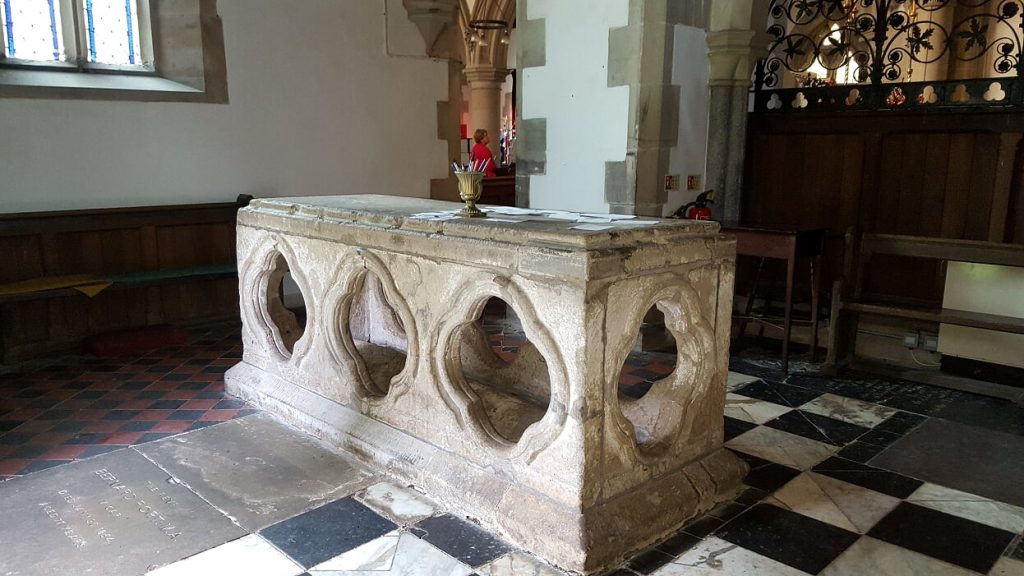
In the small village of Ilam, in the beautiful valley of the River Manifold, and at the foot of Dovedale, we find the ancient Church of the Holy Cross, and within it, the tomb of St Bertram, in Old English, St Beorhthelm. This is one of those few, and most precious, shrines of an early British saint which has remained to the present times and was left undestroyed in the Protestant Revolution.
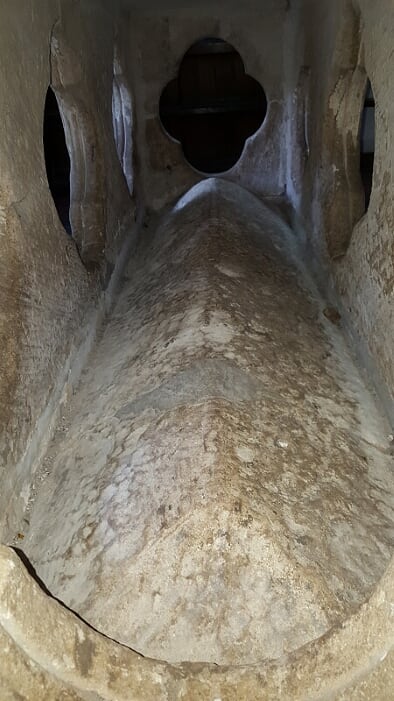
St Bertram was a prince of the Kingdom of Mercia, and lived in the 8th century. It is said in an early account of his life that he refused to stain himself with a life of excess and set off for Ireland as a young man where he was welcomed into the court of one of the many Irish kings. He fell in love with the daughter of the king, and falling into sin with her, he fled from Ireland with her, when she was heavy with child.
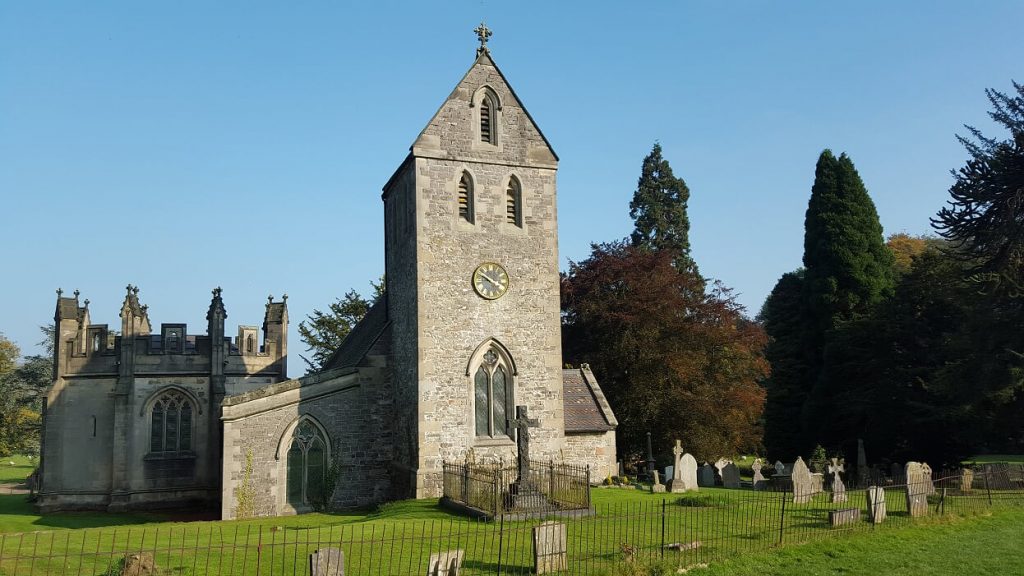
Returning to England he took refuge in a forest not far from modern Runcorn. But when he went to find a midwife to help in the birth, wolves came and attacked the princess and the newly born infant, and left them dead. Bertram discovered them on his return and was utterly desolate. He gave himself to repentance and the spiritual life, and lived as a hermit in that place. We read…
He served God there in solitude with previously unheard of mortifications, having in true contrition his sin always before his eyes and leading a life of contemplation. And holy and merciful God, not despising a humble and contrite heart, forgave him many sins, according to the multitude of his mercies, for he loved much. He loved God ; he was loved of God; he magnified Christ with good works ; he was magnified by Christ with many miracles.
He was tempted by Satan to turn stones into bread, but he responded to the enemy by turning that bread which he had into stones. These stones were venerated in the Church of St Bertoline, named after him, at Barthomley in Cheshire. After some years he returned to the court of his father, and rejecting all worldly prestige he asked only for a remote and uninhabited island upon which he could establish himself more completely in the hermit life.
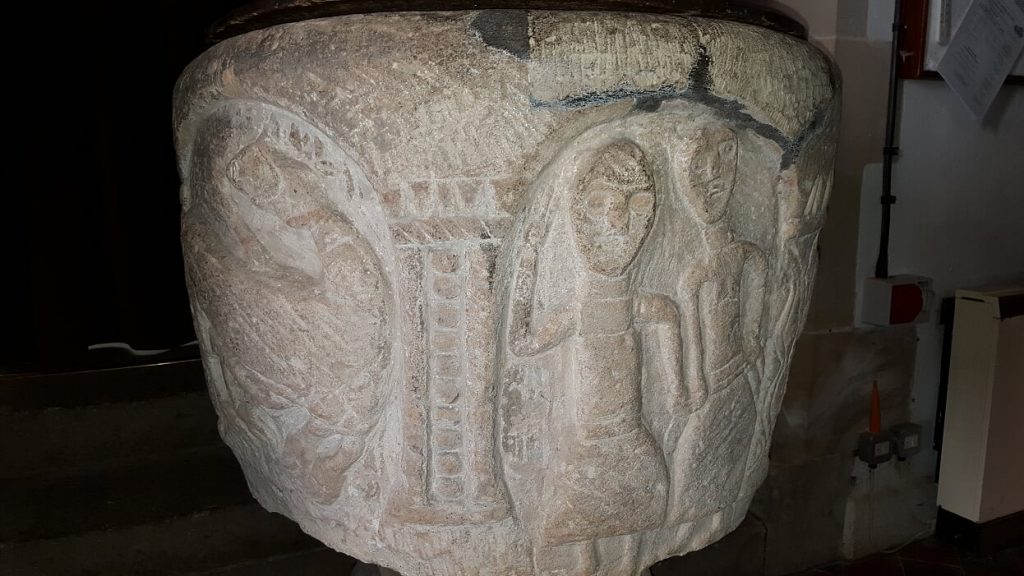
He was given the small island of Bethney, which is now the city of Stafford. The Church of St Mary in Stafford, though much later, lies next to the remains of the much older Anglo-Saxon Church of St Bertelin, or Bertram. There the noble hermit laboured long in penance, and by his spiritual triumphs shone with many miracles.
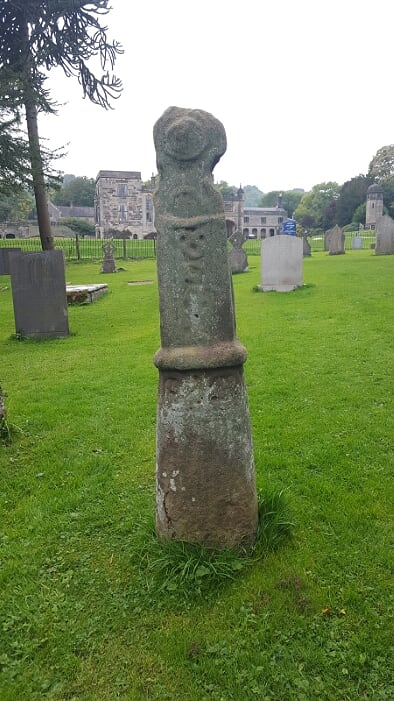
His father, the King, died in due course, and those who came after wished to dispossess Bertram of his island retreat. None would come to his aid, until at last, it was determined that a trial of combat would decide the outcome of the case.
Bertram, full of grace and strength, prostrated himself in prayer, saying ‘ O God, come to my help. O Lord, make haste to help me. O Lord my God, in Thee have I hoped, save me from all those that persecute me and deliver me. I am made a stranger to my brethren, and there is no one to comfort me. Deliver me and put me by Thy side, and then let the hand of whosoever will fight against me.’ When Bertram’s prayer was ended he heard a voice that said, ‘ Fear not, beloved of Christ: the Lord has heard your prayer, the Lord has accepted your supplication.’
In the morning, when the contest was to take place, Bertram was met, unexpectedly, by a dwarf who addressed him saying, ‘Sir, here am I ready to defend your cause in the name of Father, Son, and Holy Spirit‘. The trial by combat took place, and the dwarf was pitted against a giant of man. But he was victorious, and by an infinite superiority of strength, took the great ruffian quietly and stretched him at his feet, cursing and roaring out with a loud voice. So Bertram was left to his hermitage in peace.
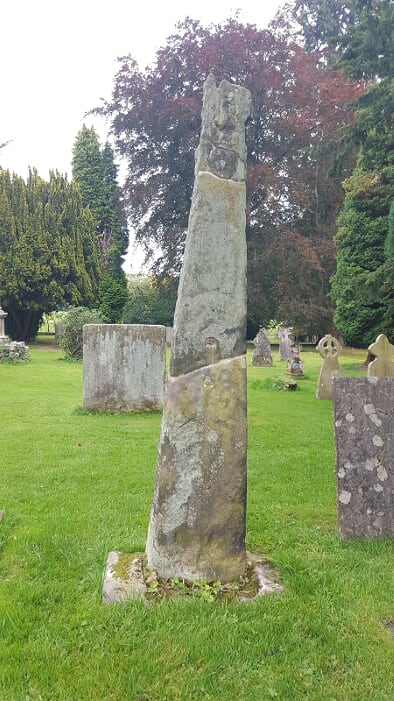
It seems that life on the island of Bethney began to be too disturbed and disturbing as the local population grew and gathered around this saint. He set off again, and journeyed into the hills where he established another hermitage in a more remote place at Ilam. He continued his strict life of prayer and worship with every ascetic effort. We read…
The saint of God, fearing temporal glory and honour, went away and roamed like a mountaineer over lonely heights, where, occupied with fasts and prayers, serving God with much watching and condemning the vanity of this world, he ended his life on September 9th.
He was buried in Ilam, where an early church once stood, and where there are several ancient crosses, and an early baptismal font. His tomb remains here, still a place of pilgrimage, and miracles have taken place through his intercessions. One such account says…
Now there was in the town of Stafford a certain man named Willmot, a cook by trade. This man had during many years, nearly sixteen, lost the sight of his eyes, so that he was unable to go abroad without a guide to go before him. At length, after many years had passed, he was led to the church of St. Bertellinus (Bertram), in the town of Stafford itself, with the object of regaining his health. He was kneeling in prayer before the saints’ altar while the priest, whose name was Joannes Crostiis, was during mass presenting the Eucharist to our Almighty Father, and at that moment the blind man had his sight given back to him, the first thing he saw being that awful Sacrament, and so gave thanks to God on high, who for His love of St. Bertellinus (Bertram) had renewed the miracles of old. This miracle took place in the year of our Lord 1386. Let us therefore all implore the mercy of the Supremely Blessed, that he may, to the increase of the honour of the blessed Bertellinus (Bertram) the Confessor, and the confirmation of our faith and hope, vouchsafe to show forth his merits to us by his customary miracles, so that all men, worshipping him with devout hearts, may earn the reward of bodily and spiritual health, and, whatever their tribulations, may draw from them salutary effects as they implore the saint’s help, by his merits and the intercession of his prayers, by the aid of Jesus Christ our Lord. Amen.”
Holy St Bertram, pray for us.
